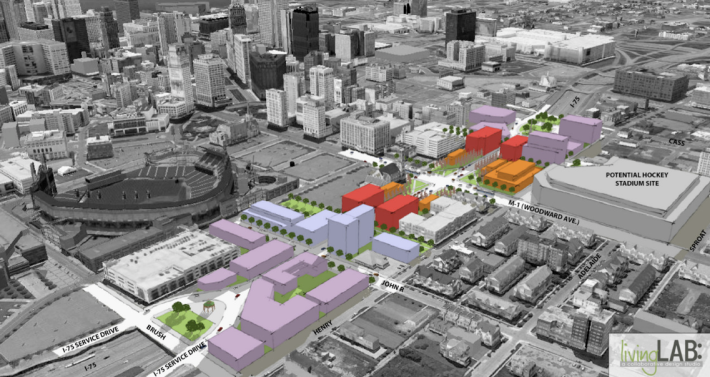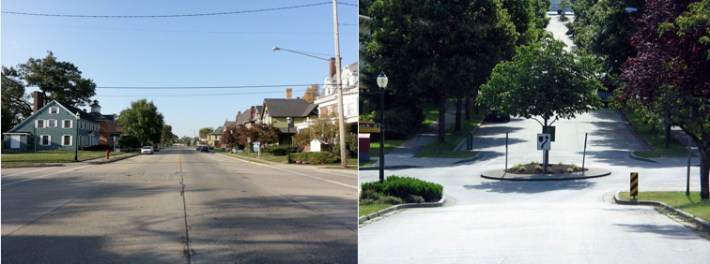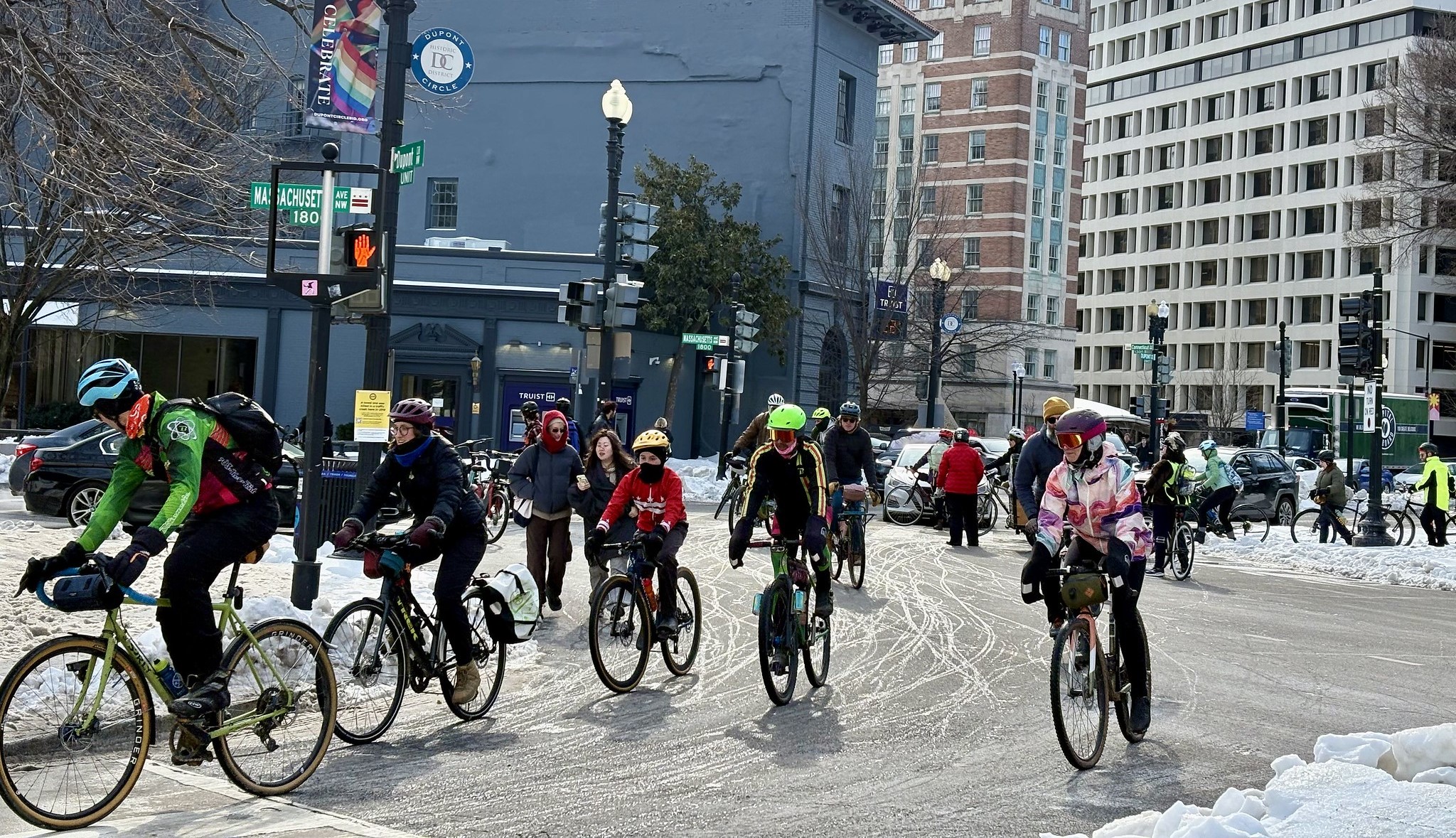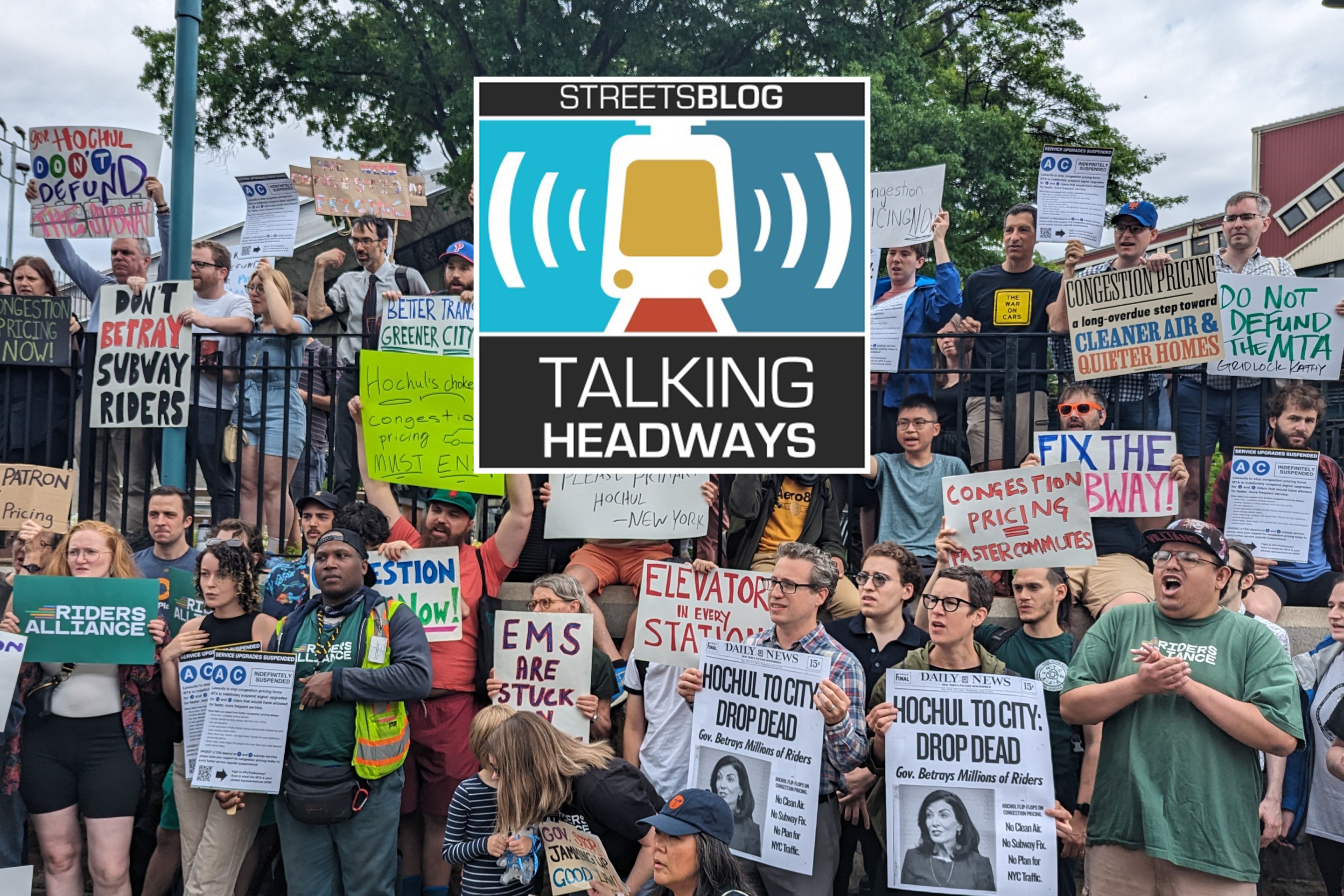
What would a more sustainable transportation system look like for the Detroit region? Or Michigan at large?
Detroit's regional planning agency didn't show much foresight when, over the protests of many local jurisdictions, it green-lighted two highway projects totaling $4 billion this summer. But the non-profit Let's Save Michigan is trying to help Michigan's leaders envision a more inspired future, one built around sustainability, equality, and community.
The group has enlisted the help of people from around the state as part of the "Highways for Habitats" project, calling on designers to put forward their best and boldest grand ideas for their communities. And people have answered their call.
It's amazing how much different transportation solutions are when they're inspired by the experiences of community members, rather people who consider themselves first-and-foremost highway designers.
What if I-75 near downtown Detroit were capped, one project proposes, to help connect the city's new Arena District to other neighborhoods?
"Currently, the I-75 Freeway is a considerable concrete barrier to connectivity, particularly to pedestrians and bicyclists -- a forbidding moat of noise, fumes and desolation," writes the design team, Living Lab, in their entry. "Detroit Lid!" would add a 0.4-mile deck over the freeway, making room for mixed-use infill development and public space while reopening key connections for walking and biking.
Another proposal focuses on two major thoroughfares near downtown Muskegon (population 37,000). Wide widths and high speeds on Webster Avenue and Muskegon Avenue stifle the potential of the city, designer Brandon Morrison says.
"These two streets bisect our downtown and currently create a huge barrier between our urban neighborhoods and our downtown business and museum district," he writes.
Morrison has been working with the city on a plan to calm traffic with on-street parking, street trees, bike lanes and mid-block crosswalks. He also calls for adding roundabouts to slow motor vehicle speeds and welcome biking and walking on residential streets.

Designers Nick Helmholdt and Bonnie Bona, meanwhile, have proposed transforming North Main Street in Ann Arbor with a protected, two-way bike lane and a reversible traffic lane. Currently the road consists of four fast-moving lanes for cars.
"This 4-lane highway is unsafe for pedestrians and cyclists due to traffic speed (posted at 45mph) and vehicle volume (over 26,000 per day)," write Helmholdt and Bona.
But North Main Street also serves as the grand entrance to Ann Arbor, the team says, and it needs "a gateway zone, simultaneously transitioning drivers’ mental states while improving non-motorized access and safety."
Lets Save Michigan is asking the public to weigh in and vote for their favorite plan. Voting closes Thursday, so you better act fast.





